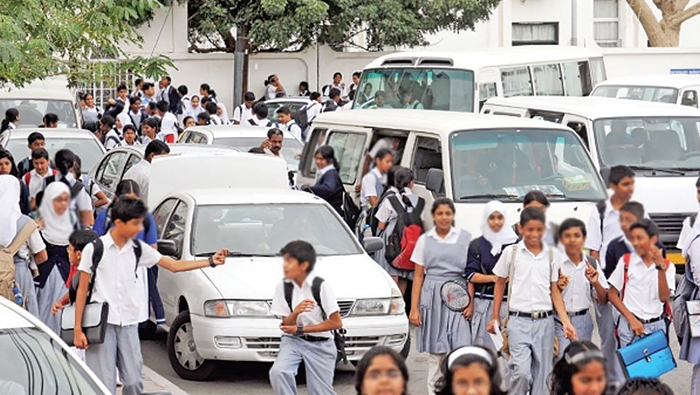
Muscat: There has been a 10 per cent drop in the number of admission requests to Indian schools in Oman, according to officials.
The normally frantic first week of admissions has witnessed a drop in requests - possibly signifying that fewer expat Indian families are coming here, or that families have been sent home.
“We have around 3,300 applications this year to date, which is 10 per cent less compared to the number of applications that poured in after the first week in 2017,” said Wilson V George, chairman, board of directors of Indian Schools in Oman.
The online registration for admissions (KG I to Class IX) to Indian Schools in the capital area for 2018-19 started on January 10, 2018, and will continue till 2pm on February 15, 2018.
This is applicable to admissions in Indian Schools in the capital area: Indian School Muscat, Al Ghubra, Darsait, Al Wadi Al Kabir, Al Seeb, and Al Mabela.
George noted they are expecting some 4,000 to 4,500 new applications after the admission system closes this year. “Last year, we got around 5,300 applications,” he added.
With less demand for admissions, the authorities will try to accommodate most of the students in the morning shifts. “This is simply because most of the parents opt for the morning shifts,” George explained.
According to the board of directors of Indian schools in Oman, the available vacant seats in KG I are around 2,290, with the maximum number being at the Indian School Muscat, which has 525 seats. “We have got around 1,900 new applications for KG I till now,” George pointed out.
In KG II, there are some 433 vacant seats, of which Indian School Mabela has 153. In KG II, we have got around 400 new applications,” according to the the board chairman.
Besides KG I and KG II, the demand for Class I is high, where the Indian Schools have 493 vacancies. “For Class I, we have got around 450 new applicants in the first week after the applications were opened,” he revealed.
The fall in the number of children seeking admission can be attributed to various reasons, including financial crises and the embargo on bringing families to the Sultanate in the first six months of employment for expats.
“Not many expatriates are coming to Oman because of the low number of jobs available in the country,” a CEO of a private firm remarked.
The number of educated expatriates is dropping, with companies cutting down on jobs, experts say. Data show that the number of expatriates holding PhDs and other university degrees and diploma holders has declined in the first 11 months of 2017.
In December 2016, the number of PhD holders was 2,726, but at the end of November 2017, it was 2,678.
The number of master’s degree holders stood at 5,680 at the end of 2016 but slipped to 5,365 at the end of November 2017.
The number of higher diploma and university students also dropped from 4,860 to 4,616 and 93,704 to 88,541, respectively.
The number of diploma holders also dropped from 52,536 to 50,407 between December 2016 and November 2017, according to the National Centre for Statistics.
The Indian parents who have applied are, however, happy. “Hopefully, we will get the school and the shift of our choice this year,” stated S Ghosh, who has applied for her son’s admission in Indian School Muscat.
The centralised system with online registration
(www.indianschoolsoman.com) introduced by the board facilitates the entire admission process at these schools.